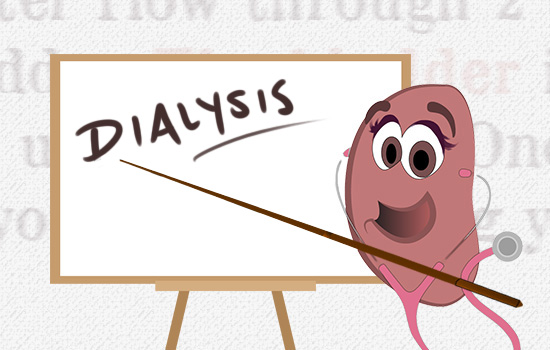What is dialysis?
Dialysis is a type of renal replacement therapy. It is a treatment which removes excess water, solutes, and waste products from the body when the kidneys cannot naturally perform these functions.
It doesn’t provide complete replacement of kidney function. But by removing the metabolic waste and excess water, it provides a means to sustain life for those with advanced kidney failure.
What are treatment options for end stage kidney disease?
| TRANSPLANT | HEMODIALYSIS | PERITONEAL DIALYSIS |
| Receive a new kidney from a donor | Machine pumps blood out of the body, cleans, then returns it | Cleansing fluid flows into the abdomen and filters waste products from the blood |
How do I identify which treatment is best for me?
Your health care provider will provide you with information in regards to each modality. There are many factors which guide the decision making process including family support, age, other medical problems, primary kidney problem and compliance.
A kidney transplant will eliminate the need for dialysis and assume the role of ones native kidney – the only difference here is that one needs to take immunosuppressive medications to prevent our body from rejecting the kidney. Keep in mind not all patients are eligible and for those that are they wait for years on the transplant list. Since getting a transplant is a long process (unless you have a living donor) most patients end up using one or both forms of dialysis.
What ‘Opting Out’ of Dialysis Means
It’s important to relay your wishes early on to your doctor and family. Opting out of dialysis can quickly affect your health and quality of life. Your body will build up waste. This may make you tired, itchy, nauseated, feel lethargic and/or have poor appetite. You may also begin to retain water and have higher than normal amounts of acid and potassium in the blood. This can pose serious cardiac complications.
Talk to your healthcare provider so your treatment course can be tailored to your wishes on whether or not you want to proceed with dialysis.


